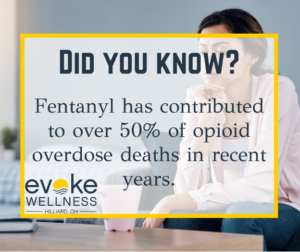Narcan: A Lifesaving Drug for Opioid Overdoses
- What is Narcan? Narcan (naloxone) is a medication that can reverse the effects of an opioid overdose. It works by blocking the effects of opioids on the brain.
- Narcan Usage. Narcan use has increased dramatically in recent years. From 2019 to 2020, the distribution of naloxone kits increased by over 200%. This correlates with the rise in opioid overdoses across the US.
- Saving Lives. When administered during an overdose, Narcan can save someone’s life by restoring breathing and reversing sedation. Still, long-term recovery requires substance abuse treatment and support.
Call us at (833) 949-1347 today or reach out online.
What Is Narcan and How Does It Work?
The Opioid Overdose Antidote
Narcan (naloxone) is a life-saving medication that rapidly reverses an opioid overdose. It works by blocking the effects of opioids like heroin, fentanyl, and prescription painkillers.
Countering Respiratory Depression
Opioid overdoses can cause breathing to slow or stop completely – a condition known as respiratory depression. Narcan binds to the same receptors in the brain, counteracting this potentially fatal effect.
Safe and Effective
When administered during an overdose, Narcan allows normal breathing to resume within 2-3 minutes without impairing someone’s ability to feel pain. Its effects are temporary, giving time to receive further medical care.
Narcan has no potential for abuse or overdose itself. It is safe and effective, with over 25,000 overdose reversals reported from its use by emergency responders.
Signs of an Opioid Overdose and When to Administer Narcan
Recognizing an Overdose
Opioid overdoses can happen rapidly and prove fatal if not treated promptly. Knowing the signs is crucial for a timely response. Look for:
- Unconsciousness or inability to wake up
- Shallow or erratic breathing
- Pale, clammy skin
- Limp body
- Tiny pupils
When to Use Narcan
Narcan (naloxone) is a life-saving medication that can rapidly reverse an opioid overdose by binding to opioid receptors in the brain. Administer Narcan if an opioid overdose is suspected, especially if:
- Breathing is very slow, erratic or has stopped
- The person is unresponsive
- Pupils are tiny
Act quickly, as an overdose can lead to permanent brain damage or death if too much time passes before reversing it.
Accessing Narcan: Availability Over the Counter and Through Prescriptions
Narcan (naloxone) is the lifesaving opioid overdose reversal medication that can be obtained without a prescription in many areas. This over-the-counter access allows family, friends, and bystanders to have this vital antidote on hand in case of an overdose emergency.
Easy Access Saves Lives
Even with Narcan administered, it is crucial to still call 911, as the effects may be temporary and further medical attention is needed. Ohio and many other states are battling an epidemic of deadly overdoses from illicit fentanyl, which is 50 times more potent than heroin.
Prescription Options
For those struggling with opioid addiction, Narcan can also be obtained through a prescription from a doctor or treatment program. This ensures access while seeking professional help to overcome the cycle of addiction and any underlying mental health issues.
Administering Narcan: Dosage, Side Effects and Precautions
Proper Dosing
- For opioid overdose, the recommended dose is 1 spray into 1 nostril
- If no response after 2-3 minutes, give another dose in other nostril
- Narcan may need to be re-administered every 20-30 minutes if overdose symptoms return
Potential Side Effects
- Body aches, diarrhea, increased heart rate and blood pressure
- Nausea, vomiting, sweating
- Irritability, anxiety, tremors
Safety Precautions
Narcan is safe when used as directed for an overdose. However:
- Do not inject Narcan
- Avoid operation of heavy machinery until side effects subside
- Seek immediate medical attention after administration
The Impact of Narcan: Saving Lives From Opioid Overdoses
A Powerful Antidote
Narcan (naloxone) is a life-saving medication used to reverse the effects of an opioid overdose. It works by binding to opioid receptors in the brain and blocking the effects of powerful opioids like heroin, fentanyl, and morphine. Within minutes, Narcan can restore normal breathing in someone experiencing a potentially fatal overdose.
Addressing a Public Health Crisis

Opioid overdoses have become a major public health crisis, largely driven by the proliferation of illicit fentanyl – a synthetic opioid 50 times more potent than heroin. Fentanyl has contributed to over 50% of opioid overdose deaths in recent years. Widespread Narcan availability and training on its use are crucial steps in reducing these preventable fatalities.
Recognizing the Signs
Recognizing an opioid overdose quickly is key. Signs include unconsciousness, shallow or stopped breathing, pale or bluish skin, vomiting, and unresponsiveness. Anyone witnessing these signs should immediately call emergency services and administer Narcan if available, as it provides a critical window for medical intervention.
Seeking Treatment: Rehabilitation Programs for Substance Abuse
Professional Support Network
While overcoming addiction is challenging, rehabilitation programs in Ohio offer comprehensive care and a supportive environment. From medical detox to residential treatment and aftercare, these programs provide the professional guidance needed during recovery. Tailored therapy options like cognitive behavioral therapy and dialectical behavior therapy equip individuals with coping strategies.
Specialized Care Paths
Rehabilitation centers offer personalized treatment tracks addressing specific substance issues like alcohol, opioids, cocaine, prescription drugs, and more. Programs cater to unique needs through dedicated offerings for veterans, LGBTQ+ individuals, and gender-specific groups. This focused approach enhances the rehabilitation journey.
Holistic Healing Approach
Beyond managing withdrawal symptoms, opioid rehab programs address the psychological aspects through counseling, family therapy, and relapse prevention education. Dialectical behavior therapy helps develop emotional regulation skills, essential for lasting sobriety. The comprehensive care model supports clients in rebuilding healthy routines and relationships.
FAQ: Common Questions About Narcan
What is Narcan?
Narcan (naloxone) is a medication used to reverse opioid overdoses. It works by blocking the effects of opioids like heroin, fentanyl, and prescription painkillers on the brain – restoring normal breathing within 2-5 minutes.
How does it work?
Narcan displaces opioids from receptors in the brain, reversing life-threatening respiratory depression caused by an overdose. It binds to the same receptors, but without producing euphoric effects.
When should Narcan be used?
Administer Narcan if someone shows signs of an opioid overdose like pinpoint pupils, unconsciousness, shallow breathing, choking sounds, limp body, or pale/bluish skin color. It’s safe – Narcan has little effect if no opioids are present.
How is it given?
Narcan comes as a nasal spray or injectable form. The nasal spray is easy for anyone to administer, while injections require training. After giving Narcan, call emergency services as effects may be temporary.
Conclusion
You now understand what narcan is, how it works to reverse opioid overdoses, and its lifesaving impact. With overdose deaths rising, narcan access and training remains critical. Consider getting trained on narcan administration yourself. Also, support policies that increase narcan availability and fund substance abuse treatment programs. While narcan provides a safety net, the ultimate goal is preventing addictions before they start and helping people achieve lasting recovery.
Begin Your Journey with Evoke Wellness at Hilliard
If you or a loved one is considering treatment, Evoke Wellness at Hilliard invites you to contact us. Our compassionate team is ready to answer your questions, discuss your needs, and help you take the first steps toward recovery. In Hilliard, you’ll find more than just a treatment program – you’ll discover a community dedicated to your wellness and success. Together, let’s embrace the journey to recovery and the promise of a new beginning. Call us at (833) 949-1347 today or reach out online.



